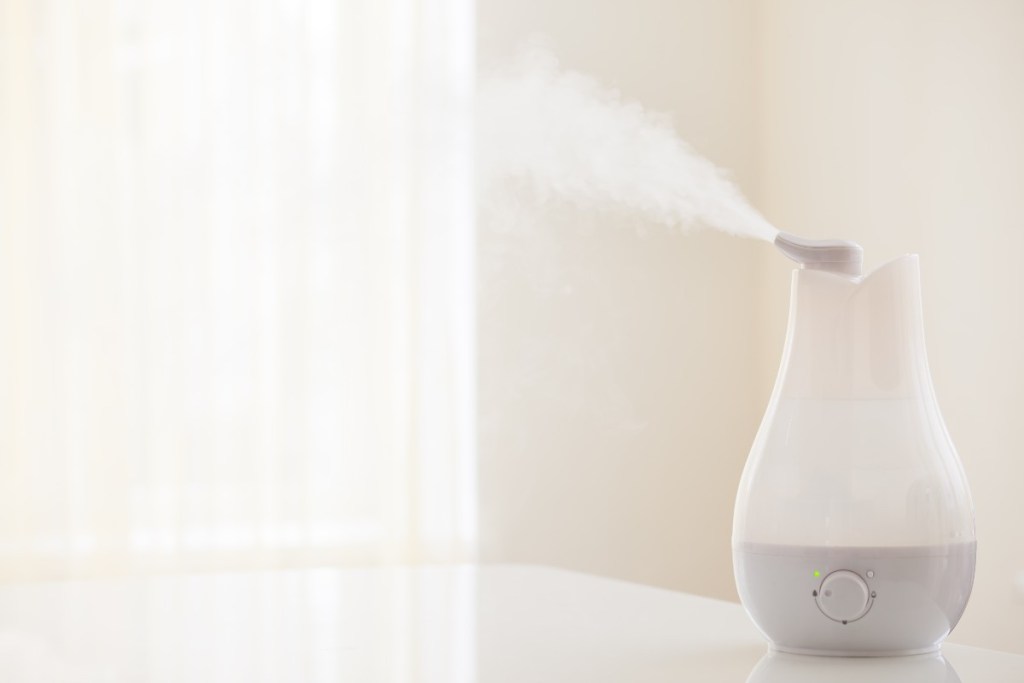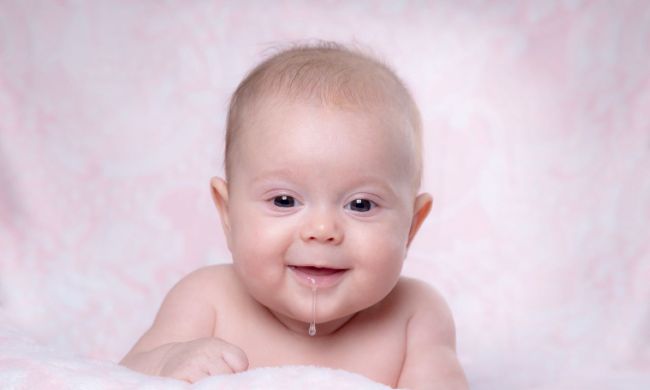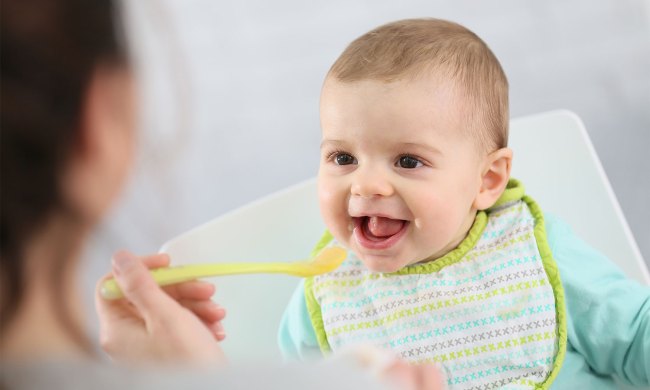As a new parent, you are going to buy or get lots of gear. One often-overlooked item that you will definitely want to get before Baby’s big debut is a humidifier. This moisture-making piece of equipment offers numerous benefits when placed in your newbie’s nursery (or at you bedside if you’ll be snoozing in the same room).
While you may have a humidifier somewhere shoved in the back of a closet at home, it is probably time to invest in a new one. Why? A humidifier can be the difference between sporadic sleep and more reliable, restful nights — for you and your baby. Want to learn more? We’re sharing how a humidifier can help your honey-bunny — and what to look for when browsing options.

Baby humidifiers help with congestion
One thing you’ll learn very early on in your parenting journey: Babies get colds — and lots of them. As your little one builds up their immune system, bugs and viruses and stuffy noses will happen. What’s more, many littles experience congestion while teething, too. Regardless of the reason, it’s best to be prepared.
Just like a humidifier can ease an adult’s symptoms of congestion, they can help your poor little cutie-pie get relief, too. Babies don’t have the same coping mechanisms older children and grown-ups have; they cannot blow their noses or find a better angle in bed, so a humidifier can be an especially useful tool from birth on. The moist air can help thin out the mucus congestion clogging up their nasal passages.
Even when they are not sick or teething, a humidifier can help infuse moisture into dry air. If you find that you wake up feeling stuffy, chances are your baby will, too. In this vein, a humidifier might be extra helpful in the cold, dry winter months. If you find yourself cranking up the heat, a humidifier is the antidote to all that hot artificial air. Yes, you (and Baby) can have it both ways — stay warm and keep those mucus membranes clean and clear.
The right humidifier is good for your baby’s skin
Infants have very sensitive skin. If your mini-me suffers from dry patches or eczema, a humidifier may be able to help. It is another tool to protect that oh-so-delicate skin barrier from damage. It likely won’t entirely prevent or stop patching and irritation, but it can quell any discomfort or itch and tame that subsequent redness. Again, this can be especially pertinent in colder months or in places with dry climates.
Choosing a humidifier
Ready to shop for a baby humidifier? The options can be overwhelming. (Who knew there were so many features and variations?) Fortunately, you can narrow down the contenders by taking a few factors into consideration:
- Most pediatricians recommend getting a cool-mist humidifier, as there’s no risk for accidental burns.
- You can opt for a humidifier that has a filter to help discourage the accumulation of bacteria, mold, and minerals. Do take note of how often filters needs to be swapped out. More importantly, clean your vessel thoroughly and regularly per the instructions. In this vein, choose a system that has an easy-access tank and fewer parts to scrub. Some options may even be dishwasher friendly.
- Some humidifiers have a nozzle that you can point to direct the air flow. This feature can be especially helpful in a larger room.
- Keep the size of the room in mind when selecting a humidifier. Most models will recommend use for a certain amount of square footage. Don’t be fooled — bigger is not always better. If a room is small, you don’t want too much moisture building up in a confined space. Of course, on the flip side, keep in mind that a smaller tank will need to be refilled more often.
- A humidifier that features an automatic shut-off or timer feature can be useful. Some options may turn off when the tank is empty. Other high-tech humidifiers will sync with Alexa or Google Home, allowing you to control settings remotely.
- Some humidifiers may be multifunctional and feature colored lights to soothe your baby.
Other general humidifier use tips
Already have your humidifier waiting at home? Before you put it in the nursery and start running that bad boy, consider these tips:
- Use distilled water in your humidifier.
- Place your humidifier out of reach from your infant or toddler on a flat surface in an open area. You don’t want it getting walls or other items wet — this could lead to mold and mildew.
The benefits of using humidifiers for infants are plentiful, and it’s definitely an item you will want to add to your registry or scoop up on your own. Whether Baby has a stuffy nose, an incoming tooth, or you’re just cranking up the dry heat on a cold night, you will be thankful when your little sweetie sleeps more comfortably with cool moisture gently circulating through the air.


